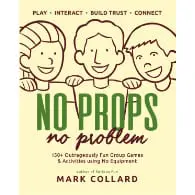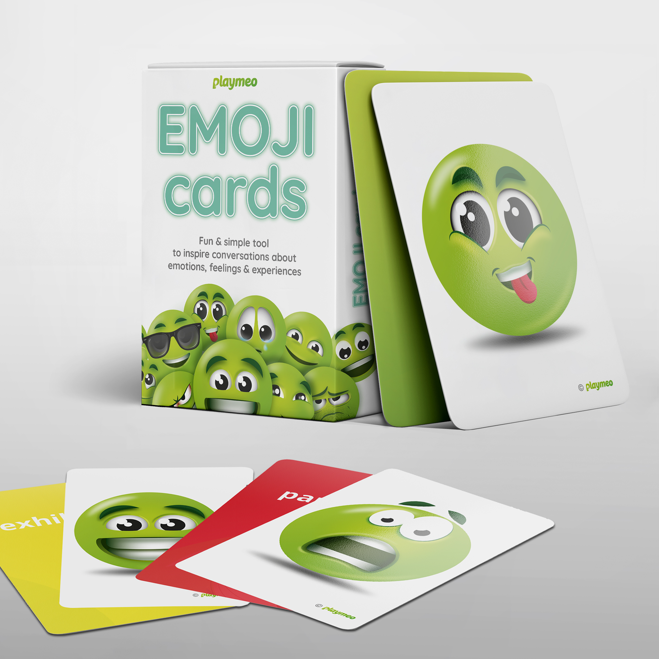20+ Fun & Engaging Ways to Form Random Pairs
So you’ve asked your group to pick a partner so that you can form smaller teams and… they immediately make a beeline to their best…

This is not a pitch for political correctness.
It’s about respect.
I want to share with you a few simple, practical ways I have learned to successfully (and safely) address any group of people I am leading.
Early in my career, I can remember leading a terrific workshop with a group of teachers, most of whom were female. At one point, I happened to refer to the group in a manner I had become accustomed to using because I had been spending a LOT of time in the United States.
It sounded like this:
“Okay guys, let’s move on.”
Well.
I was quickly admonished for failing to use a more inclusive term because – as it was clearly evident to all in the room – most of the group were not “guys” in the literal sense of the word.
At the time I pleaded the case that it was not my intention to offend anyone, but today, I realise that this is not the point. Intention is clearly important, but so is what I say and how it lands for the other person or, in this instance, my group.
Lesson learned.
Download our free 28-page ebook jam-packed with outrageously fun activity ideas.
Just one more question:
Adopting an experiential approach (and still smarting from the ‘guys’ experience,) I started trialling a wide variety of group nomenclatures to find something that worked, such as:
Long story short, I settled on “Folks,” and this has pretty much landed well for all of the groups I have encountered. Students, teachers, administrators, corporate workers, teammates, campers, etc.
ps: A group of young people once remarked that they were not “old people” and couldn’t understand why I referred to them as such. Puzzled, I could not recall using that term so I asked what did they mean. They said something to the effect, “You keep calling us folks.” So I guess you can’t always win 🙂
I have often regarded respect as one of the Golden Rules – respect for self, others and the environment. This triumvirate pretty much guides my life, both professional and personal.
So, I encourage you to consider how you address your groups because, in my perspective, it can make a big difference.
For example, a camp leader I worked with for a summer always addressed the 250+ male campers he was in charge of as “gentlemen.” It seemed so formal to me at first. Why not “kids” or “boys” or even “children?” But, as it was explained to me, using a term such as gentlemen gave the boys something to aspire to, rather than calling them a bunch of other less-affirming names, which may fuel a much less desirable outcome.
And it worked. So, it was a no-brainer that I adopted this same approach when I became camp leader (for 5 x summers.)
Yes, the term was respectful, but it also gave my boys something to live up to. A group of gentlemen were less likely to start a food fight in the dining hall than a bunch of #$%%^#@!!, if you get my drift.
Certainly, my 250+ gentlemen caused their fair share of strife during my camp leadership days, but I truly believe it impacted their behaviours because all things are created in language. My language (and that of my staff) set a high bar for our expectations of their behaviour. And this approach was always going to create an air of respect, which was typically reciprocated by the campers.
With thanks to Andrew Wood from The Browne Center and Lorraine Connell (Peers Not Fears program,) I offer this list of other (mostly fun) ways to refer to groups of people:
I’m not sure that I would ever use some of these terms. But, if you’re looking for more ideas, I’m sure a search on your favourite web browser will pull up even more.
What are your favoured ways to address groups of people?
Share in the comments below.

Best-selling book featuring 150+ fun group games & activities. Scan QR codes to access digital content including videos.

Brand new deck of cards featuring emoji images to help you inspire conversations about emotions, feelings & experiences.
Download our free 28-page ebook jam-packed with outrageously fun activity ideas.
Just one more question:
Share this with friends and colleagues.
We offer a range of membership plans with no surprises.
Click an option below & discover our simple pricing.

Click here if you’re a:

Click here if you represent a:
Explore plans for
10, 50, 200 or more
potential users
Comment via email from Alex Dobrovansky:
I loved your article on inclusive language! It took me some time to break the habit of addressing everyone as ‘guys,’ but I’ve made a conscious effort to incorporate ‘folks’ into my vocabulary as well.
Given the increasing number of individuals identifying as gender non-conforming, I believe it’s crucial that we strive for greater inclusivity.
I definitely notice it and find it particularly meaningful when people use inclusive language, as it really fosters a sense of safety while also signaling that the speaker is an inclusive and safe person
One phrase I’ve adopted when addressing a group is “Ladies, Gentlemen, and Other Distinguished Guests.” It might feel a bit funny using it in front of a group of kids, but I find it to be a delightful choice!
I wonder if this is a “Mark” thing because I, too, do my best to avoid “guys”. My solution? I use “everyone” as in, “Okay everyone, if we can come back together as a larger group…..” In my mind it is respectful, equitable, and (hopefully) not controversial.
Come to think of it Mark, yes, I think I use this term from time to time, too. Thanks for sharing 🙂
my go-to as welllll! plus ‘everybody’, ‘people!’. (“,)